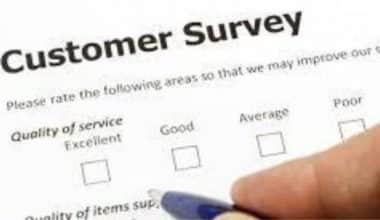As the trend among customers keeps evolving, business marketing teams must develop strategies that will resonate with their customer base. Mass customization is an effective marketing strategy for businesses, as customers want more from the brands they patronize. Hence, brands need to show them that they understand their needs and can offer solutions.
This guide provides a comprehensive overview of mass customization marketing, including its definition, concept, types, and examples.
What is Customization Marketing?
In the context of marketing, “customization” refers to the process of making changes to goods or services to provide customers with personalized experiences. Customization marketing allows customers to adapt a product or service to their preferences, exercising control over their experience.
Why Is Customization Important?
Customization has become increasingly important today as customers expect businesses to deliver custom options. Modern consumers want to be able to customize anything and everything to fit their individual preferences.
What Are the Benefits of Customization in Marketing?
Utilizing mass customization in manufacturing, marketing, and sales can result in a number of positive outcomes. The top benefits of using mass customization as a marketing strategy include the following:
- Better profits – Companies can charge a premium for customization while keeping production costs relatively low, increasing their profit margins.
- Increased customer satisfaction – Customization allows customers to design products that better meet their preferences, leading to higher satisfaction levels.
- Competitive advantage: Offering mass customization can differentiate a company from its competitors, making it more appealing to customers seeking a unique product.
- Simplified production and inventory management: Mass customization can improve manufacturing protocols and inventory management by shifting towards just-in-time production. This allows products to be manufactured to near completion before customization options are added.
- Reduced excess inventory costs – Implementing a just-in-time approach to mass customization can help companies minimize inventory costs and increase efficiency. It reduces costs by balancing mass manufacturing resources and time against manufacturing expensive, individually created things.
- Increased brand loyalty: Offering unique, semi-custom products can enhance customer loyalty toward a brand.
- Flexibility in customization types: Companies can choose from various customization strategies to best suit their products and organization.
- Higher perceived value: Customization creates a greater sense of value for customers, making them more willing to pay a premium for customized products.
- Increased sales: Offering customization can help move customers through the sales funnel, potentially tipping undecided customers into purchasing. It enables companies to charge higher prices and increase sales.
- Applicability to various industries: Mass customization can be applied to numerous fields, such as retail, software, financial services, and modular home building, providing benefits across different sectors.
Disadvantages of Customization Marketing
The disadvantages of customized marketing can vary depending on the specific type of customization and the industry. However, some common challenges to customized marketing include the following:
- Increased costs: Customization can be expensive, especially if it requires specialized technology or additional resources. For example, offering personalized products may require additional manufacturing time and costs.
- Complexity: Customization can add complexity to operations and supply chains. This can lead to longer lead times, increased inventory management, and higher costs.
- Managing customer expectations: With customization, customers may have higher expectations and may be less forgiving of mistakes or delays. This can put pressure on companies to deliver high-quality products and services consistently.
- Marketing challenges: Traditional marketing strategies may not be effective for customized products. Marketers must identify similar needs among their target audience and create a campaign that resonates with them. However, few strategies are available for marketing customized products, which can be challenging.
- Limited scalability: Customization can limit scalability, as offering personalized products or services to a large customer base may not be feasible. This can limit the potential for growth and revenue.
What Are the Four Types of Customization?
There are four major types of mass customization. They are
#1. Collaborative Customization
In collaborative customization, businesses form partnerships with their customers to provide goods or services uniquely suited to their needs. One of the examples of this type of customization marketing would be a pizza business that provides customers with toppings of their choice.
Pros
- Increased creativity: Collaborative customization can increase creativity and innovation by combining diverse skill sets and perspectives from the company and the clients.
- Improved outputs: By working closely with clients, companies can produce better outputs tailored to the client’s specific needs, leading to greater customer satisfaction and stronger relationships.
Cons
- Time-consuming: Collaborative customization can be time-consuming, often involving extensive brainstorming, meetings, and debates between the company and the clients.
- Costs of collaboration: Collaborative customization may come with additional costs in terms of time and resources spent on meetings, communication, and collaboration.
#2. Adaptive Customization
Businesses develop standardized items that the end-user can modify, such as an all-in-one pocket knife that the consumer can use in whatever manner they choose. It suits businesses whose customers want the product to perform differently on different occasions. The available technology allows them to customize the product easily on their own.
Pros
- It reduces or eliminates the need for users to experiment with multiple configurations to achieve the desired product performance.
- It provides a competitive advantage to companies offering versatile and adaptable products over those offering only generic products.
Cons
- Inconsistent content: Adaptive customization can negatively impact SEO if the content is inconsistent across all devices, making it harder for search engines to crawl and index it.
- Limited adaptability: Adaptive customization focuses on optimizing the design for specific devices and contexts, which may limit its adaptability to new devices or changing user needs.
#3. Cosmetic Customization
Companies make standardized items but advertise them differently to a varied clientele. One of the examples of this type of customization in marketing is when the same company that makes premium ice cream also manufactures and markets a supermarket brand of ice cream. Cosmetic customization allows customers to personalize certain product features while keeping costs at or near mass production prices.
Pros
- Enables manufacturers to delay the step of product differentiation until the final phase of manufacturing, allowing the consumer to decide on the features that make the product unique.
- Cosmetic customization allows companies to show they know the unique ways each customer likes the standard product given.
Cons
- Many company managers have discovered that cosmetic customization can produce unnecessary costs and complexity.
- Businesses often underestimate the challenges of customization and disappoint customers. Today, only 16% of interested customers think that companies would be able to deliver customized products
#4. Transparent Customization
Businesses offer one-of-a-kind products to specific customers without explicitly stating that the product is personalized. One example would be offering a product recommendation tool on their websites or including a customer in sales letters sent by the company to that customer.
Pros
- Predictable Needs: When the customers’ wants are obvious, transparent customization is appropriate. This simplifies customizing products and services for clients.
- Customer Behavior: It allows businesses to customize their offerings to meet the needs of their customers without bothering them with an endless barrage of surveys on preferences.
Cons
- Time-Consuming: Time is needed to understand clients and match their preferences. This may be too time-consuming for certain businesses.
- Tricky to Implement: Product customization is not easy for e-commerce websites. Ensuring that customized products or services meet the customers’ needs is challenging.
What Are the Examples of Customization in Marketing?
Businesses can offer customization in different ways, such as through packaging, marketing, cosmetics, or by developing a product that innately adapts to its environment.
Examples of Customization Marketing Strategy
- A furniture maker offering a sectional couch or sofa with a variety of layout options and a selection of legs, fabrics, and colors so a customer can tailor it to their living space
- Louis Vuitton’s My LV line allows buyers to personalize products to look nearly like custom designs.
- Hertz Corporation’s #1 Club Gold Program uses cosmetic customization to increase the value of its standard rental cars by personalizing the experience for customers.
- Planters developed a customized packaging capability, allowing each retailer to order the product they want to stock.
Other marketing customization examples include Franklin Sports using machine learning to deliver one-on-one product recommendations across channels based on each customer’s product interests, behaviors, recent transactions, and predictive models like propensity to buy.
What Is the Difference Between Customized and Personalized Marketing?
Customization and personalization marketing are types of marketing strategies with multiple differences. The user initiates customization, while personalization is done for the user. Although both approaches aim to tailor the customer experience, the paths used to reach this objective differ.
Customization
Customization as a marketing strategy happens when the customer manually makes changes to achieve their preferred experience. It allows users to modify something to suit a particular individual or task. This approach is explicit and controlled by the users themselves.
Personalization
Personalization is achieved when a system tailors an experience based on a consumer’s previous behaviors and aims to be as close to regular human interaction as possible without actually being human. Brands that get personalization right have better customer relationships, drive better engagement, and get better conversion rates.
The future for online retail brands will likely see refinements of this type of business model.
Here are five differences between customized and personalized marketing:
- Initiation: Customization starts with the user, whereas personalization starts with the user.
- Control: Personalization is implicit, meaning it takes place without actively asking users for their preferences, while customization is explicit, meaning the user controls it.
- Data: Personalization is achieved through customer data and predictive technology, while customization is achieved when a user manually makes changes.
- Effort: Whereas customization involves some level of interaction, personalization requires no effort from users.
- Goal: Both customization and personalization aim to tailor the customer experience, but the paths used to reach this objective differ.
The Concept of Mass Customization Marketing
Mass customization is a business concept that allows companies to produce and market customized products and services according to the requirements of individual customers while keeping the cost of a custom-made unit low or equal to the mass-production price.
Customers are more satisfied when they feel a product is more tailored to their needs when mass-customized. At the same time, businesses gain the benefits of flexibility and integration when it comes to creating tailor-made goods at scales of production that are more affordable.
Mass Customization Marketing Tools
Businesses use various marketing tools to customize and personalize their marketing strategies. Some commonly used tools include email, social media, billboards, search engine optimization (SEO), surveys, and analytics. However, providing customers with a personalized experience has become much easier recently. The advent of customer experience and personalization tools, software, and apps has changed how businesses interact and engage with their customers.
Here are some examples of customization and personalization tools that businesses can use:
- Google Optimize is a website personalization tool that lets businesses run tests to identify what works on their website, blog, or ecommerce store.
- VWO is an experience optimization suite with multiple platforms and services that businesses can use for personalization. It lets businesses see what type of content, pages, forms, images, and other elements visitors and customers engage with on their website.
- RightMessage is a segmentation tool businesses can use to segment, personalize, and convert website visitors into customers. It surveys and segments visitors based on survey responses and behavior.
- Hyperise is a hyper-personalization toolkit for B2B marketers. It provides a complete toolkit that enables personalization throughout the sales funnel, regardless of channel or existing tools used.
Customization Marketing Strategy
Customization is becoming the new marketing strategy for businesses. It is essential for increasing efficiency, ensuring maximum optimization of resources, and cutting down on unwarranted waste. When implemented properly and audited regularly, customization can become a startup business’s edge to level out the competition in the business arena.
Customizing the CRM system is an example of how businesses can use customization to wow their customers. A customized CRM system can collect correct and relevant data for business activity, which becomes the basis for analysis and future action. The information collected from a customized CRM system can help businesses create and use customizable invoice templates that suit the demands of their customers.
Related Articles
- PERSONALIZATION ECOMMERCE: Best Techniques and Benefits
- MASS MARKET: The Ultimate Guide
- The top digital marketing trends to watch for in 2023
- MARKET SPACE: Definition, Components & All You Need To Know
- PRODUCT MARKET: Meaning, Examples, Market Fit, Survey, and Differences
References
- Market Business News
- Investopedia






